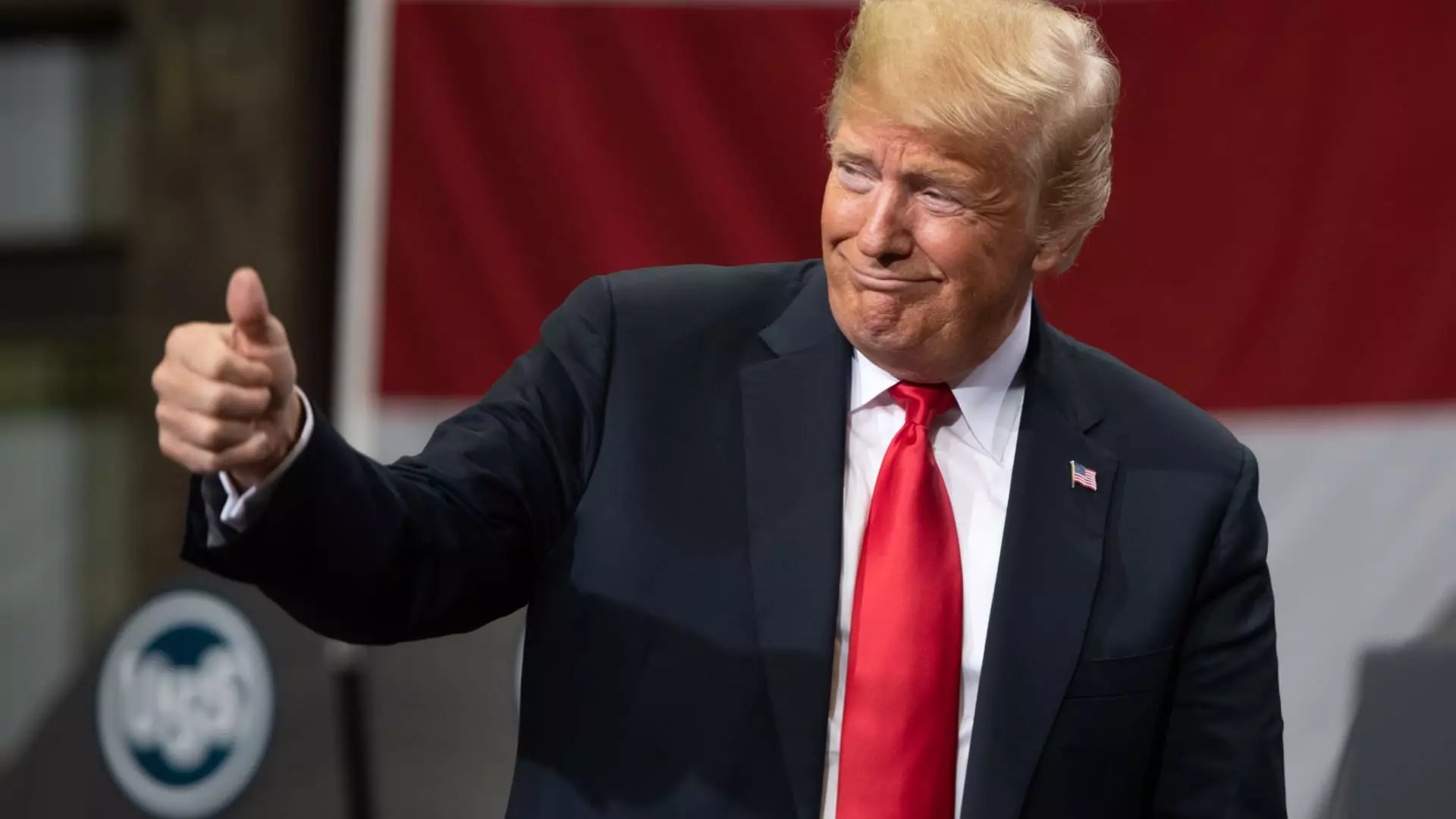The stock market is an enigmatic beast—riding high on optimism one day and plunging into the abyss the next. Few figures have managed to wield as much power over the market’s emotional highs and lows as former President Donald Trump. In a recent episode that unfolded after his utterly audacious post on Truth Social, he urged his followers to “BUY!!!” mere minutes before he rolled back some of the tariffs that had previously sent stocks tumbling. In a single tweet, he managed to create a watershed moment for investors: one moment, they were staring at grim prospects; the next, they had a small fortune at their fingertips.
This incident raises critical questions about the intersection of politics and financial markets. Can a tweet truly dictate market sentiment? While some investors found themselves buoyed by fortune, others viewed his actions through a more cynical lens, branding them nothing short of market manipulation. The emotional volatility that shadowed this episode is illustrative of the dangerous dance between political rhetoric and stock valuations.
The Roller Coaster Ride of Investor Reaction
For the savvy investors who seized the moment right after Trump’s declaration, the reward was substantial. Stocks like the SPDR S&P 500 ETF and Trump Media & Technology experienced skyrocketing gains almost instantaneously. If you had invested just $1,000 right when Trump’s tweet hit your feed, you could have eagerly eyed a return of about $1,222. Such figures not only illuminate the profit potential but also highlight the risky nature of trading based on political cues. The dilemma lies in whether one should rely on presidential proclamations, which can feel more like whimsical whims rather than solid financial advice.
While early investors basked in euphoric returns, it’s crucial to acknowledge that the very same market remains under significant threat. Just days before this rally, Trump’s announcement of new tariffs sent stocks into a panic. The volatility is stark: one day investors are celebrating a windfall, and the next, they could be lamenting poor decisions made on the basis of erratic political communications. It’s an uneasy reminder of just how susceptible our economy remains to the whims of those in power.
Political Commentary or Insider Trading?
The backlash against Trump’s actions was immediate and fierce. Discussions on forums like WallStreetBets revealed a mix of admiration and skepticism. Some commentators speculated that the president’s maneuverings teetered dangerously close to insider trading. How insightful it is that in an era characterized by instantaneous communication, a president’s words can sway markets instantaneously—what appears to be a rallying cry for investors can equally be construed as an act of manipulation.
The very allegation that our economic fortunes can hinge on the tweets of a single individual should outrange us all. It raises ethical questions about leadership and accountability in our financial systems. Shouldn’t market stability be built on well-researched data rather than presidential soundbites? Despite moments of exhilaration for some, the potential for abuse leads to a concerning political narrative: the market is effectively at the mercy of a political gamble.
The Moral Dilemma of Speculative Investment
There’s no denying that speculation allows people to uncover opportunities that others may overlook; yet, in this case, the moral implications of investing based on blatant political machinations are murky. If speculators win, it often comes at the expense of those in the middle class whose lives are tangled in the complex web of economic dependence on stable markets. While a quick profit can be tempting, the question arises: is wealth gained through dubious means worth the potential fallout?
Treading the line between optimism and cynicism becomes a balancing act when politics intertwines with financial pursuits. As we witness these speculative bubbles buoyed by erratic decision-making, we must ask ourselves if our economic health should be contingent on the volatility of political whims.
As we tread forward into an uncertain financial future, it becomes increasingly vital to disentangle political rhetoric from sound investment strategies. It’s essential to rise above the emotional roller coaster and adopt a more systematic approach. The market may dance to the erratic tunes of politics, but as investors, our long-term interests should invariably hinge on more stable and fundamentally driven metrics.

